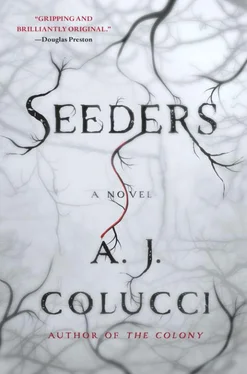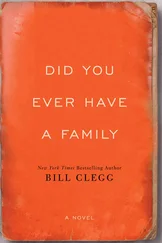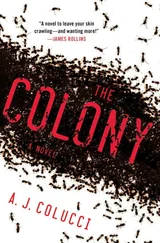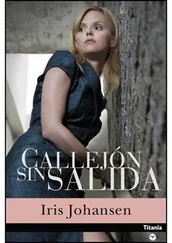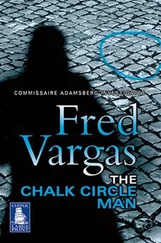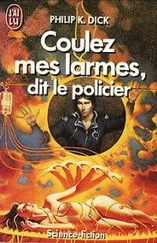“The study of fungi,” Isabelle said.
“That’s right.” Laurie was beaming. “Gosh, you picked a beautiful day to come out.”
Her buoyancy was off-putting and Isabelle wondered if the woman knew how many bodies had been lying dead on the island just a year ago. They walked up the gangway. Although her femur bone had healed quite well, Isabelle still had a slight limp.
Laurie bobbed along with a spring in her step. “It’s just the two of us working here, Dr. Jacobs and myself. I’m more of an assistant.”
“Only two of you?” Isabelle asked with an edge in her voice. “Shouldn’t there be more? Police, FBI, or something?”
“There were dozens of people at first, detectives and scientists. But the investigation was over months ago,” Laurie said. “Oh, I forgot. There’s Oscar, who helps out with the heavy work since the police finished up. They sort of left a mess.” She turned up a lip. “Jeez, they left soda cans and garbage in the woods as if the place were condemned. Like, hello? There’s still people working here.”
For a moment, she reminded Isabelle of Monica.
They came to the entrance of the woods and Isabelle slowed. It was a stark reminder of that last ghastly day on the island, but there didn’t seem to be any fungus on the trees, so she took a quick breath and followed Laurie into the shadows of canopies.
The path was wide and clear. Much of the foliage had been taken down or trampled by vehicles with heavy wheels. They stepped quietly past signs of an abandoned police investigation. Faded yellow tape was draped across bushes and muddy puddles on the ground.
Overhead, branches were starting to bud. Isabelle nervously shifted the bag to her other shoulder. “Is it safe to breathe the air?” she asked.
Laurie nodded heartily. “Oh yeah. For weeks there was a crop duster saturating everything with antifungal agents. Dr. Jacobs finally made them leave. He was worried it was toxic to us.”
“As long as it’s toxic to fungi.”
“They tested the air twice a day for weeks. They put these giant solar-powered gas chromatographers everywhere. Really high-tech stuff from the NSA, like this was some kind of terrorist attack or something. Dr. Jacobs made them leave too. There was no sign of airborne contamination.”
“So it really was a fungus making us sick.”
“There were high levels of ergotamine in the spores.”
“Ergot,” Isabelle whispered.
“You’ve studied it?”
“Not really.”
Laurie beamed with a broad smile. “Oh, let me tell you, ergot is fascinating .”
Isabelle stared with a deeply furrowed brow. What was wrong with this woman? Was she stupid or insensitive?
“Usually ergot grows on grasses and has to be ingested for a long time to cause ergotism. But this species could grow on any plant. It produced this highly potent alkaloid that works real quickly on the nervous system. Oh yeah, and it was airborne, which is really unusual.”
Isabelle felt her stomach lurch, but continued down the path.
“The symptoms are pretty diverse. Nervous dysfunction, dizziness, headaches, hallucinations.” She was counting on her fingers. “Twisting, contorting, massive pain, crawling sensations, psychosis, delirium. It can even cause gangrene. Patients can lose arms and legs.”
Isabelle wished there was a way to make Laurie stop talking.
“Sometimes victims cut off their own extremities. The handyman—what was his name? Hedges?”
“Hodges.”
“That’s right. He had a severed foot.”
As Laurie continued babbling about ergotism, Isabelle tuned her out and walked faster. She was feeling claustrophobic in the woods, scrutinizing trees and bushes, flinching at the sight of dark grooves in the bark.
Laurie had no trouble keeping pace. “Ergot’s been linked to plagues all over Europe since the Middle Ages. Killed millions of people. Victims would be screaming of visions, dancing in the streets, speaking in tongues. It took hundreds of years to trace the problem back to infected rye bread.”
The woods opened to wide fields and sky, acres of blackened ryegrass burned to the ground and a mansion in the distance. They both paused to look at the house and then continued up the path. Laurie was suddenly quiet and Isabelle felt grateful. But it didn’t last long.
“Did you know that ergotism was the cause of the Salem witch trials?”
Isabelle answered, staring straight ahead, “I read something about that.”
“There was a late spring and a wet harvest that year, and the rye was contaminated.” She sounded a bit winded as they reached the top of the path. “That’s what they like, cold and wet. This island is the perfect climate for an outbreak.”
They reached the patio and Isabelle noted the grounds were spotless. The smashed window had been replaced. Everything looked fresh and clean. Even the house seemed to be in better shape, repaired and newly painted.
The sliding glass doors were already open and Isabelle peeked inside.
Memories flashed in her mind and she didn’t want to enter the house, but Laurie was already walking into the library. She followed her across the shampooed rug and the air smelled fresh. The books were all gone, the shelves bare and dusted. In the hallway, they passed the staircase and Isabelle strained to keep from looking up to the room where Monica was killed. She felt another wave of nausea as they approached the laboratory.
Laurie turned, looking directly at Isabelle, and for the first time her smile was gone, replaced with a stern expression. “To be honest, we weren’t exactly sure why you came back.”
Isabelle was struck by the bluntness of her statement, the feeling of not being welcome. And what did she mean, we ? She pictured the other scientists and the detectives on the case, sitting around scratching their heads, asking why the crazy woman would come back to an island where her husband and son were murdered.
Laurie didn’t wait for a response. She opened the door to the lab.
It was clean and painted white with shiny high-tech equipment everywhere. Equipment her father probably never dreamed of owning. One of the walls had not been painted and it was splattered with large brown letters.
SEEDERS .
The two stared at it for a moment. Isabelle asked, “Is it blood?”
Laurie nodded. “The boat captain.”
Isabelle was disturbed that they hadn’t painted over the word. Did the police want it left for further analysis or had it become some kind of joke to the scientists? Laurie was staring at Isabelle and she started to feel uncomfortable.
“So where is Dr. Jacobs?” she asked and put her bag down.
“He’ll be here soon. Can I get you water or coffee or something?”
“No. I’m fine, thank you.”
The young woman picked up a folder on the desk. “He thought you might want to read some of the reports.”
Isabelle didn’t. “Thank you, not right now.”
Laurie put on a pair of glasses and seemed older, not the impetuous girl who met her at the boat. Her tone had changed. She flipped through the folder and shook her head slowly in disbelief, clicking her tongue. “Eight innocent lives. I think your son’s death bothers me most. Luke showed such promise.”
Isabelle let out an audible breath. She was about to ask the woman for a glass of water just to make her go away.
“What about your younger son, Sean?”
The mention of his name made Isabelle flinch.
Laurie scanned the page. “The police think he jumped off the cliffs like his grandfather.”
Isabelle pursed her lips. The story was a lie. If it were true, they would have found Sean’s body, just like they found George. The FBI had combed the island for days with police dogs and trained rescue teams. They insisted the boy was gone, but Isabelle didn’t believe them. Even when Sean’s tennis shoe washed up on the beach two weeks later, she thought there was another explanation. It was all Isabelle thought about in the last few months. That, and the fact that Sean had let her live. As she lay helpless on the cliff that day, her son had cried out in anguish. He couldn’t kill her. A piece of Sean was still inside, a scared boy wanting his mother, tormented by the act of killing his brother. Was he distraught enough to jump off a cliff?
Читать дальше
